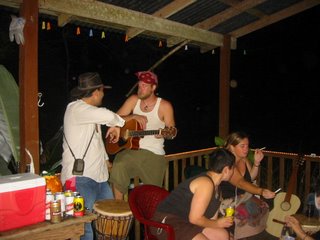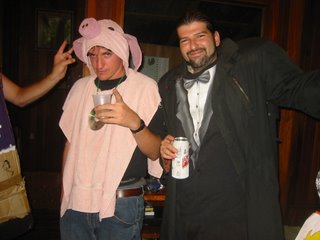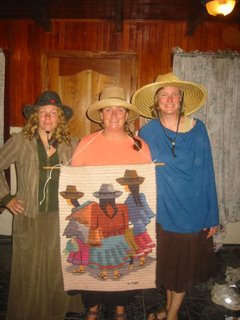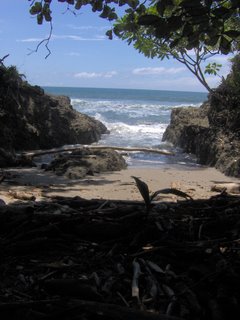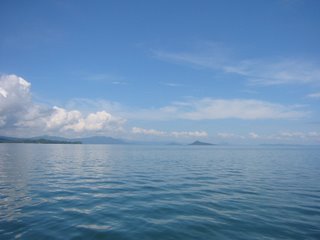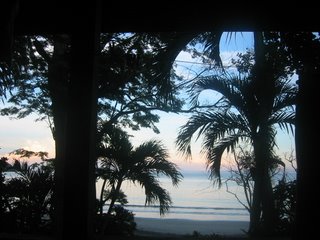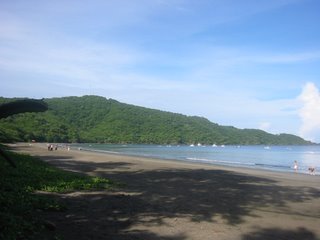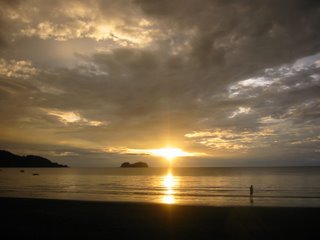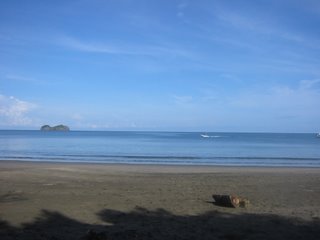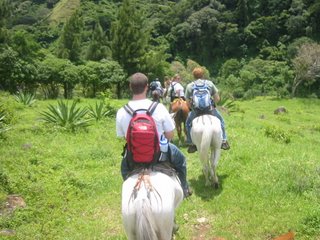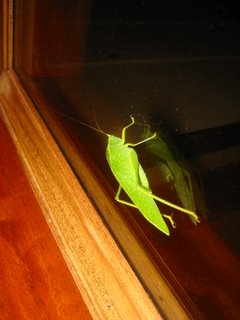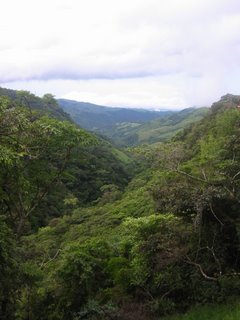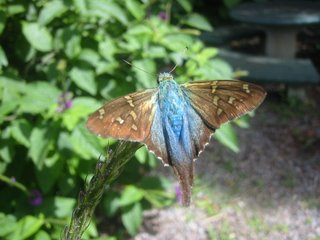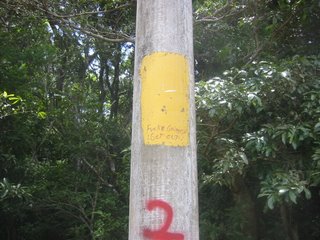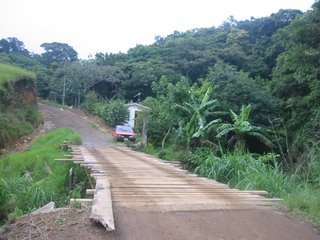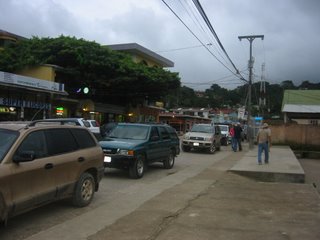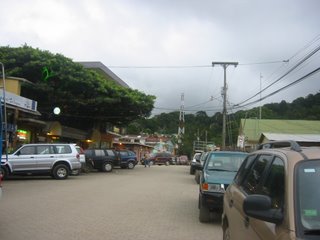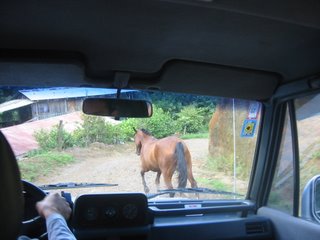Sabado en Montezuma
Halloweén is not a tico holiday but in gringo pockets it´s celebrated with some enthusiasm. The gringos dress up, the ticos put clothes together differently or wear a hat backwards - somehow the costume part has been translated but not the significance.
There was a Halloweén party on Saturday, Saturday because there are more people here on the weekend. All day the talk in the town was of the party, from about 3pm children trooped down to Chico´s Bar for coloured balloons and candy: the kids were gringo and young.
Chico´s was hosting the party with prizes for the best disfraces. It rained hard on and off all night, we went down but not into the bar, instead joining the throngs of ticos outside watching. Occasionally a gringo in costume would walk through: there weren´t many costumes and I saw only 4 guys en disfraces: mostly it was girls wearing as little as possible to make the point; a blackcat, 2 witches, a mermaid (she won the prize) and 2 fairies. The local school was serving food, the arroz con pollo was good.
Ticos stand and watch. We bought our drinks at the supermarket and we watched too. There´s a lot to see in Montezuma on a Saturday night: people talking, drinking, smoking, the rain pouring, 2 of the local drunks lying wrestling on the street in front of the bar. One had fallen over and Loco, the other, was trying to get help to have him lifted. No-one wanted to help being more interested in watching them. Finally Loco fell over too and both grappled and wrestled for a long time. Cars drove round them, people circled, dogs sniffed. I asked Randal if no-one would pick them up. He said no, why should they, the men like to drink, they fall down, that´s their life. It sums up a lot about tico culture. A country of individualists who exist side by side, love gossip, but prefer to remain hands off.
Later the cops turned up in their postman pat van and manhandled the less cohesive drunk into the back seat. The cops here are old and fat and enjoyed pushing the drunk around. They then had a brief argument over which of the 5 would also get to ride in the car. The youngest lost out and had to walk the 50 metres back to the tiny station. The rest got in the van and sat with the lights flashing for a couple of minutes longer. The smell inside the car must have been bad: 5 grown men in a Tracker but I´m sure the light show made it worthwhile.
The music in Chico´s was awful - that commercial bump bump stuff that fills dead places. The dancers could do very little with it. A group of young men formed a mosh pit but that was squashed by DJ Ocean in his pirate outfit. Of the 4 guys in costumes, 3 were pirates, the other was a sailor.
We sat drinking, smoking, watching, I was waiting for something to happen but everyone else seemed content with sitting in the streets talking and looking. Ticos spend an enormous amount of time sitting and watching. Muy tranquilo. We left about 2 and walked back along the beach.
Now it´s Sunday morning. I´m downtown waiting for the internet cafes to open. The mermaid, who´s Canadian is sitting nearby, she works for a tour company. Loco is lying across the street sleeping and yelling " Estoy Loco, si, si" in turns. I´m a little goma but not bad, Randal is walking the dogs. It´s hot, later I´ll go for a swim. Life is good in Montezuma.




